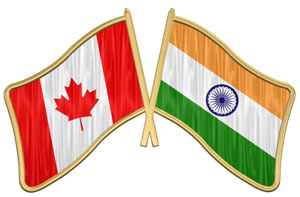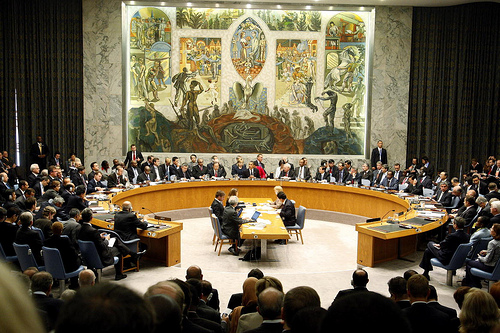Freedom, democracy and pluralism are the pillars of shared values upon which India and Canada premise their longstanding bilateral partnership. As members of the Commonwealth of Nations and former British colonies, the two countries share common interests in the international sphere. While these shared values and interests are recognized, in reality not much importance is placed on this bilateral relationship within India, Canada and elsewhere internationally. It is more a relationship in which the two countries share a history of missed opportunities. Canada and India remain equidistant and do not exactly appear on each other’s radar screen. The United States continues to hold paramount importance in both countries—with the former constantly looking for closer partnership with its neighbour Canada and also India. However, the bilateral cooperation between India and Canada, if truly discerned for its full potential and capability, possesses the capacity to be stronger, productive and better known.
An area of mutual importance between India and Canada is the economy. As the founding member of the BRICS Development Bank (a potential complement to the World Bank and International Monetary Fund), India is a vital economic powerhouse to be acknowledged and dealt with. It is projected that by the year 2050, Asia will contribute more than 50% to the global GDP of which one-third is expected to come from India. India’s strength lies in its remarkable human capital and purchasing power ability. More than half of its population is under the age of 35. Canada too, possesses the economic wherewithal, natural/human resources and the population demographics to court India’s sprawling economy. A partnership with Canada will enable India to diversify its markets internationally as well as enhance its participation in the multilateral fora. A sustainable partnership with India will allow Canada to expand its influence and preferential access within South Asia—where currently it remains limited.
To ensure a sustainable partnership, India and Canada must move forward in their negotiations of a Comprehensive Economic Partnership Agreement (CEPA). For Canada completing the CEPA means an increase in its exports to India by approximately 50%. The greater access to goods and services without attached barriers and more job creation will augment Canada’s economic growth. An increase in exports to India will also lower Canada’s dependency on the U.S—its traditional export market. For India, the CEPA would grant it preferential access to the North American markets. Further, an agreement with Canada will help solve India’s long-standing food, energy, infrastructure and technical expertise needs.
Furthermore, Canada has the potential to illumine India’s radar because of the presence of a large Indian diaspora in Canada. The Indo-Canadian community estimated to be over one million has gained significant accomplishments in many areas such as politics, health care, academia and media. This community can be a natural gateway for the Canadian government to enhance a partnership with India. For India, strong linkages with its people abroad would generate possibly more income from money transfer. It will also aid Indian students seeking opportunities in Canada to easily qualify for student visas and permanent residency.
Alongside building and strengthening cultural and commercial relations, Canada and India must also maintain cooperation to meet looming geopolitical global security challenges in an effort to preserve international peace and security. Dialogues and policy consultations should increase (and perhaps go beyond their regular UN cooperation) to discuss counter-terrorism, prevention of human rights violations; meeting pressing food and water shortages, resource scarcities and climate change adversities. Collaborative action by Canada and India in this area will help, in whatever little capacity, to prevent international crisis and instability. Amidst growing regional and international turbulence, both India and Canada must work towards solidifying their relationship to face such challenges collectively.
Both India and Canada possess the necessary capacity (economic, social and political) to radiate each other’s radar screens. What is required is an initiative on the part of both nations to list each other as a foreign policy priority. It is essential to turn that page for a positive, realistic and redefined bilateral partnership. Canada and India are great powers and they must not remain at great lengths from each other for the sake of mutual and global prosperity. Sonia Hukil




